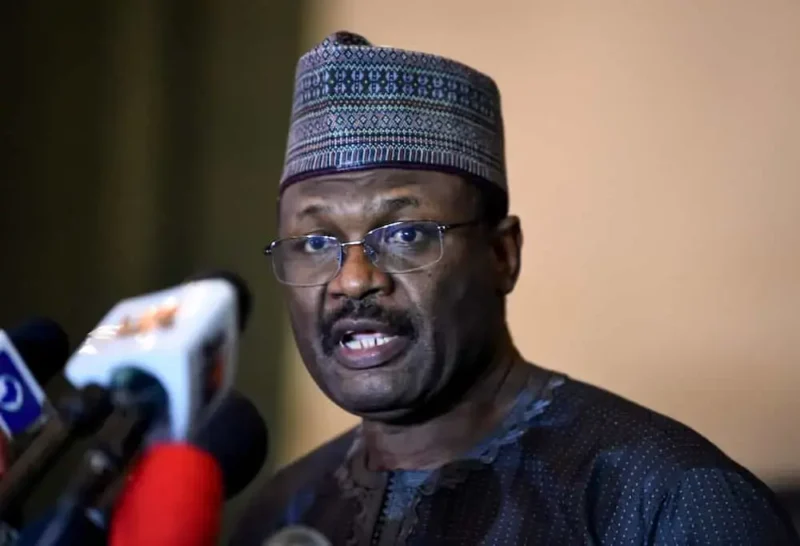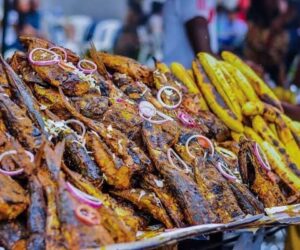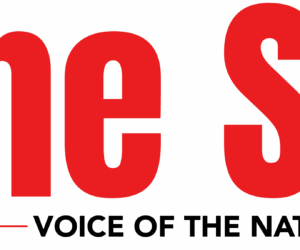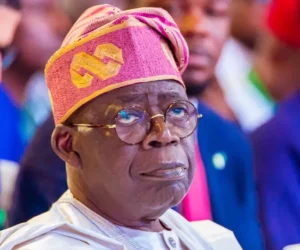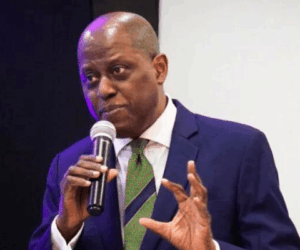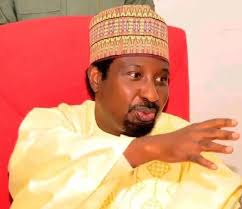1
…Yakubu, Jega Seek Urgent Electoral Reforms Before 2027
…Warn Without Reforms Poll Integrity Could Be Compromised
…INEC Officially Recognises David Mark-Led ADC Leadership
ABUJA – Chairman of the Independent National Electoral Commission (INEC), Prof. Mahmood Yakubu, on Wednesday, said while the Electoral Act prescribes sanctions for campaigns conducted within 24 hours of polling, it is silent on activities carried out before the 150- day threshold, leaving a loophole that undermines enforcement.
Yakubu also lamented that the culture of unending campaigns distracts politicians from governance and makes it harder for INEC to effectively regulate political financing.
He said these in Abuja at a one-day roundtable with the theme, ‘The Challenges of Premature/ Early Political Campaigns in Nigeria’, organised by INEC’s Electoral Institute.
He warmed that without urgent and deliberate reforms, the integrity of the 2027 general elections could be compromised.
Citing Section 94(1) of the Electoral Act, Yakubu reminded stakeholders that campaigns are only allowed 150 days before election day and must cease 24 hours prior to voting. Yet, according to him, many political actors remain in a constant campaign mode even before INEC has released the official timetable.
He noted that while the law prescribes sanctions for campaigns conducted within 24 hours of polling, it is silent on activities carried out before the 150-day threshold, leaving a loophole that undermines enforcement.
“The inability of the commission and other regulatory agencies to tackle this problem within the current framework is deeply troubling,” he remarked.
Yakubu expressed confidence that the forum, which brought together representatives of the National Assembly, political parties, civil society groups, media regulators, and legal experts, would generate concrete proposals to strengthen Nigeria’s electoral laws and close existing gaps.
“Safeguarding our elections and deepening democracy is a responsibility we must all share. I believe today’s discussions will yield practical strategies to confront this growing challenge,” he added.
Former Chairman of INEC, Prof. Attahiru Jega, also raised strong concerns over the rising wave of premature political campaigns across the country, cautioning that the practice threatens electoral credibility and democratic stability.
Delivering the keynote address at the occasion, Prof. Jega condemned early campaigns as an “unacceptable anomaly” that weakens democratic norms and diminishes citizens’ trust in the electoral system.
He observed that, despite the Electoral Act 2022 expressly limiting campaigns to 150 days before elections, politicians, especially those in power, are already engaging in rallies, advertisements, billboards, and project launches nearly two years before the polls.
“Premature electioneering tilts the field in favour of incumbents, fuels impunity, and heightens unnecessary political tension. If left unchecked, it could undermine the entire democratic process,” Jega cautioned.
He accused political actors of exploiting loopholes in the law by sponsoring activities through so-called “third-party” groups, many of which operate outside campaign finance regulations.
“Most of these third-party campaigns are illegal. When incumbents or their allies engage in them with impunity, it triggers lawlessness and erodes public confidence in the system,” he said.
Jega urged INEC, security agencies, and anti-corruption bodies to step up enforcement, noting that countries such as Australia, Mexico, and India have successfully curbed the trend with firm sanctions.
He recommended that Nigerian law should clearly define premature campaigning and prescribe heavy penalties.
He also proposed holding incumbents and political parties accountable for the activities of support groups, stronger monitoring of campaign funds by the EFCC and ICPC, improved collaboration between INEC and State Independent Electoral Commissions (SIECs) in sanctioning offenders, and the swift creation of an Electoral Offences Commission and Tribunal.
“In Nigeria, much more needs to be done to clean up the electoral space. Defining premature campaigns in law, attaching stiff penalties, and ensuring strict implementation are essential to safeguarding the credibility of the 2027 polls,” Jega said.
In his contribution, Chairman of the INEC Electoral Institute Board, Prof. Abdullahi Abdu Zuru, described the trend as a growing abuse of cultural festivals, religious events, philanthropy, and social media platforms to disguise early campaigning.
“This distortion raises the cost of political competition, distracts leaders from governance, and erodes public trust,” he cautioned.
Zuru warned that the consequences of premature campaigns are far-reaching, distorting fairness in the electoral process, inflating the cost of political participation, diverting elected officials from governance, and weakening citizens’ faith in the system.
He specifically cited the surge of billboards, branded vehicles, skits, songs, and hashtags on social media as evidence of aspirants exploiting digital platforms to gain early advantage.
The roundtable, attended by political party leaders, the Nigerian Bar Association (NBA), NBC, ARCON, civil society, and media stakeholders, resolved that sanitising Nigeria’s electoral space requires urgent amendments to the law, stronger enforcement, and sustained civic education.
INECRecognises David Mark-Led ADC Leadership
Meanwhile, the Independent National Electoral Commission (INEC) has officially recognised the leadership of the African Democratic Congress (ADC) under former Senate President David Mark.
Daily Independent gathered that the decision effectively resolves the lingering leadership tussle that had thrown the opposition party into months of uncertainty and internal strife.
A statement on INEC’s official website confirmed that the David Mark-led executive remains the authentic leadership structure of the ADC.
According to the list released on Wednesday, Senator David Mark is recognised as National Chairman, with former Osun State governor, Ogbeni Rauf Aregbesola, serving as National Secretary, and Dr. Ibrahim Ahmad Mani as National Treasurer. Other key members of the executive include Akibu Dalhatu, who occupies the position of National Financial Secretary, and Prof. Oserheimen Aigberaodion Osunbor, appointed as National Legal Adviser.
The party’s national secretariat is located at No. 4, Oyo Street, Area 2, Abuja, with contact lines 08055008888 and 08027789181.
Senator David Mark’s emergence as the National Chairman of the ADC signals a new phase for the party. A seasoned politician and respected elder statesman, Mark’s political career spans decades of service at the highest levels of governance in Nigeria.
He served as the President of the Senate between 2007 and 2015, making him one of the longest-serving Senate Presidents in Nigeria’s democratic history. Under his leadership, the National Assembly enjoyed relative stability and was widely credited for strengthening legislative independence.
Beyond the legislature, Mark has been a dominant figure in Nigerian politics since the return to democracy in 1999. Representing Benue South Senatorial District for five consecutive terms, he earned a reputation as a grassroots politician, consensus builder, and bridge between the old and new generation of leaders. His foray into opposition politics through the ADC is seen by political analysts as a bold move to reposition the party as a viable alternative on the national stage, particularly as Nigerians yearn for stronger opposition voices ahead of the 2027 general elections.
The ADC, one of Nigeria’s prominent opposition parties, has in recent years been plagued by leadership tussles that weakened its organisational strength and eroded public confidence. The emergence of Mark at the helm, alongside other prominent political figures like Aregbesola and Osunbor, is expected to inject fresh momentum and credibility into the party’s activities.

